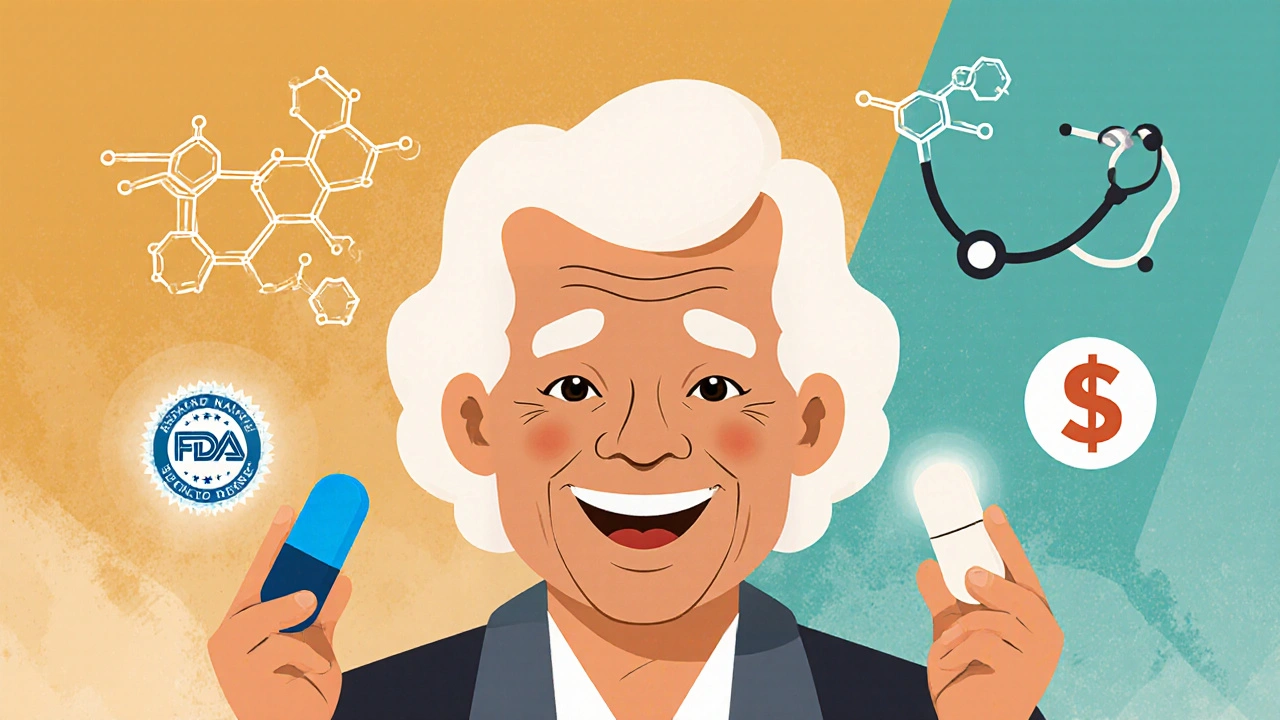FDA Approval: What It Really Means for Your Medications
When you see FDA approval, the U.S. Food and Drug Administration’s official endorsement that a drug is safe and effective for its intended use. Also known as drug clearance, it’s the gatekeeper between a new medicine and your medicine cabinet. This isn’t a formality—it’s the result of years of testing, data review, and real-world risk analysis. The FDA doesn’t just check labels; they dig into clinical trials, manufacturing quality, and long-term side effects before saying yes.
FDA approval ties directly to generic drugs, medications that are chemically identical to brand-name versions but cost far less. Just because a drug is generic doesn’t mean it skipped the approval process—in fact, every generic must prove it works the same way as the original. That’s why 90% of U.S. prescriptions are generics: they’re not cheaper because they’re weaker, but because they’re proven. The same goes for medication safety, how well a drug performs without causing harm under normal use. The FDA tracks reports of adverse reactions even after approval, and if a drug turns out to be riskier than expected—like fentanyl patches reacting dangerously to heat—they can issue warnings or pull it from the market.
The drug approval process, the multi-year system of lab tests, animal studies, and human trials required before a drug can be sold isn’t perfect, but it’s the most rigorous in the world. It’s why you can trust that a pill labeled FDA-approved has been tested for interactions, dosing accuracy, and stability. You’ll see this in posts about how food clashes with statins, why vitamin K messes with warfarin, or how generics save billions without sacrificing quality. These aren’t random stories—they’re all connected to the same system: FDA approval ensures that what’s on the label matches what’s in the bottle, and that what works in a trial works in real life.
What you’ll find here isn’t just theory. It’s real examples: how a liver enzyme test might show a drug is stressing your body, why a cat’s thyroid medication needs careful dosing, or how heat can turn a pain patch into a danger zone. Every post below is rooted in the same truth: FDA approval doesn’t guarantee perfection, but it does mean someone checked. And that matters—whether you’re managing arthritis, treating a yeast infection after antibiotics, or just trying to avoid a bad drug interaction.

Patient Trust: How to Build Confidence in Generic Medications
Generic medications are just as effective as brand-name drugs but cost up to 85% less. Learn why patients still distrust them-and how doctors, pharmacists, and the FDA are building real confidence in generics today.
